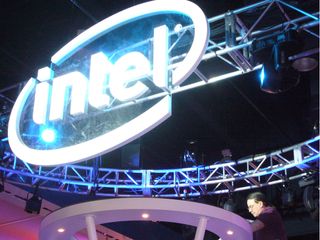Intel and Nokia to work on new mobile device
"Pocket-friendly" hardware to be developed - is it a phone?

Intel and Nokia have announced they are to join forces to develop a new family of "pocket-sized" mobile computing devices. And they'll probably be based on Linux.
A joint statement from the companies says the new hardware "will combine the performance of powerful computers with high-bandwidth mobile broadband communications and ubiquitous internet connectivity."
No netbooks then - indeed it almost sounds like Intel is advancing its MID vision with the help of Nokia, but then most MIDs could hardly be termed 'pocketable'.
Our educated guess is that the new devices have to be smartphone-type devices. But the rather vague statement from the companies warbles on to say the partnership will " define a new mobile platform beyond today's smartphones, notebooks and netbooks."
The blurb on the potential of these devices is bullish. "Taking advantage of each company's expertise as leaders in their respective fields, these future standards-based devices will marry the best features and capabilities of the computing and communications worlds and will transform the user experience, bringing incredible mobile applications and always on, always connected wireless Internet access in a user-friendly pocketable form factor." Like a smartphone then?
And what about the OS? The joint release also says the companies will be collaborating in "several open source mobile Linux software projects", including Moblin and Maemo, so it's likely that the new devices will be based on these projects.
This won't make Symbian very happy, even if it continues to be the OS of choice for Nokia's lower-end devices. And does it rule Nokia out of ever producing an Android device, for example?
Get daily insight, inspiration and deals in your inbox
Get the hottest deals available in your inbox plus news, reviews, opinion, analysis and more from the TechRadar team.
Uneasy bedfellows?
Nokia and Intel have been uneasy partners for some time. But, in their respective markets, the continued domination of ARM mobile processors and the efforts from Apple and Google in the mobile space may have finally convinced the two that collaboration is the only way forward.
The pair previously worked on bringing native HSDPA to the Centrino laptop platform, but they parted company on the idea in 2007. Intel has since, rather unsuccessfully (in many locations), pursued WiMAX.
However, the joint release also reveals that Intel will acquire a Nokia HSPA/3G modem IP license for use in future products, so we'll see low power Nokia-derived mobile data access appear in a lot more Intel hardware, then.
Nokia seems fairly enthused by the deal, at least. "Today's announcement represents a significant commitment to work together on the future of mobile computing, and we plan to turn our joint research into action," said Kai Öistämö, Executive Vice President of Devices at Nokia.
"We will explore new ideas in designs, materials and displays that will go far beyond devices and services on the market today. This collaboration will be compelling not only for our companies, but also for our industries, our partners and, of course, for consumers."
Contributor
Dan (Twitter, Google+) is TechRadar's Former Deputy Editor and is now in charge at our sister site T3.com. Covering all things computing, internet and mobile he's a seasoned regular at major tech shows such as CES, IFA and Mobile World Congress. Dan has also been a tech expert for many outlets including BBC Radio 4, 5Live and the World Service, The Sun and ITV News.
